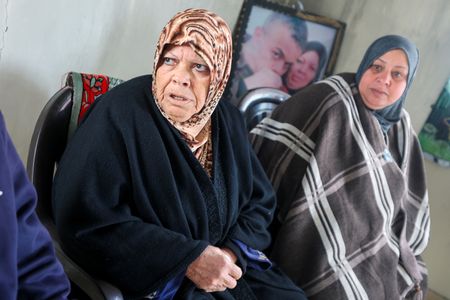By Nicolas Cortes and Alexander Villegas
SAN ANTONIO, Chile (Reuters) – “I knew she’d find me,” Edita Bizama, 64, said from her home in the Chilean port city of San Antonio after finally reuniting with the daughter who was taken from her over 40 years ago during the dictatorship of Augusto Pinochet.
Adamary Garcia was removed from her mother a few days after birth and sent abroad for adoption, one of as many as 20,000 children that authorities estimate were forcibly taken from their parents by a military government that saw international adoptions as a way to reduce child poverty.
“There was a social worker that was persistent, really persistent,” Bizama said. It was 1984 and Bizama, who already had two young children, had expressed an interest in adoption during her pregnancy. But then she started having doubts.
“But the social worker said, how are you going to raise three children? You don’t have a job, you don’t have a home, you don’t have any stability.”
Bizama said she spent five days with her daughter, holding and feeding her, before she was taken to an office a few hours away, forced to hand over her baby and sent on a bus back to her hometown.
It was a secret Bizama kept from most of her family for decades. She had no name or way of finding her daughter.
Thousands of miles away, Adamary Garcia – who grew up in Florida and now lives in Puerto Rico – knew she had been adopted but knew nothing about the circumstances.
Then a friend shared a story about Tyler Graf, a Texas firefighter who found out he had been taken as an infant during the dictatorship and had started an NGO, Connecting Roots, to reconnect adoptees with their biological families in Chile.
Traced via her sister’s birth certificate and then confirmed with a DNA test, Connecting Roots identified Bizama as Garcia’s birth mother.
Garcia, now 41, looks like her mother and two sisters. Like her older sister, she has a fascination for dogs – they have rescued and fostered dozens of dogs between them.
She sounds different, though – her Puerto Rican Spanish with Miami idioms contrasting with her biological family’s distinctive Chilean accent.
“We were all kind of looking at each other and not saying much,” Garcia said, recalling the first time they spoke over Zoom. “Looking at my mother’s eyes and saying, ‘this is the person that gave me life and, oh my God, I look so much like her’.”
Then, last week, came a tearful meeting in person at the airport.
Garcia was one of five adoptees Connecting Roots brought to Chile this year, the fourth reuniting trip the NGO has done.
Graf says the government is supportive of the NGO’s actions, but the group’s goal is more pragmatic than political, aiming to reunite as many families as possible before it’s too late.
“These mothers are getting older, some of them have passed away,” Graf said. “So we’re in a race against time.”
Usually the adoptive parents had no idea of the circumstances in which their babies were taken, he said. Garcia said her adoptive parents were very supportive of what she was doing.
Now she is getting a crash course in Chilean slang, cuisine, music and culture, and plans on taking a trip through Patagonia with her sisters and making Chile a bigger part of her life.
“It’s been non-stop laughs and tears,” Garcia said. “I think this is a moment that helps everybody get closure on things that happened 40 years ago and at the same time begin to establish relationships that are going to last a lifetime.”
(Reporting by Nicolas Cortes and Alexander Villegas in San Antonio; Editing by Rosalba O’Brien)

















